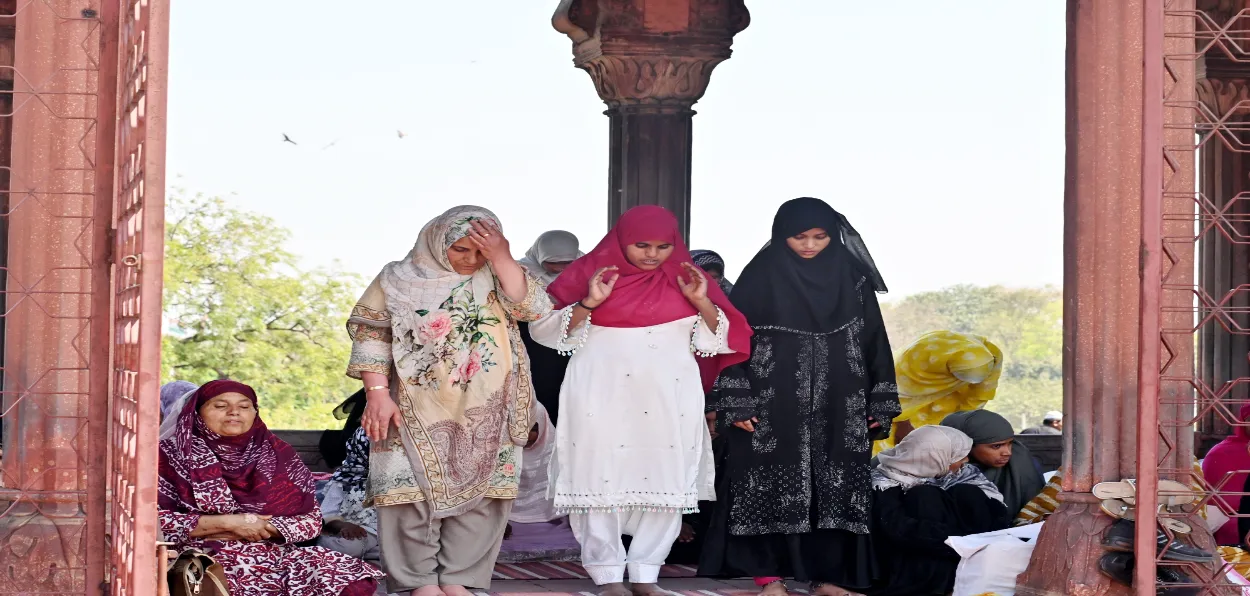
Amir Suhail Wani
Shab-e-Qadr, also known as Laylat al-Qadr or the Night of Decree, is one of the holiest nights in Islam. It is a night of immense spiritual significance, marked by devotion, prayer, and reflection. Observed during the last ten days of Ramadan, it commemorates the moment when Allah revealed the Quran to Prophet Muhammad through Angel Gabriel.
This event occurred more than 1,400 years ago, and it marks the beginning of the revelation of the sacred text that would guide Muslims forever.
The significance of Shab-e-Qadr is emphasized throughout the Quran and Hadith. In Surah Al-Qadr (Chapter 97), the night is described as being “better than a thousand months” (Quran 97:3), meaning that worship and good deeds performed on this night are considered more valuable than those performed over an entire lifetime. The Surah further reveals that during Shab-e-Qadr, angels descend to Earth, bringing peace, mercy, and blessings from Allah until dawn breaks (Quran 97:4-5). This makes the night not only spiritually enriching but also an opportunity to earn immense reward and divine favor.
Prophet Muhammad (peace be upon him) emphasized the importance of seeking this special night, especially during the last ten odd-numbered nights of Ramadan. According to a well-known Hadith, “Whoever stands in prayer during Laylat al-Qadr out of faith and in the hope of reward will have his previous sins forgiven” (Sahih Bukhari, Sahih Muslim). This serves as a reminder for Muslims to strive for greater devotion and to seek Allah’s mercy through prayer, supplication, and good deeds.
Shab-e-Qadr is not just a night of worship, but also a time when destinies are believed to be decreed for the coming year. Muslims believe that Allah’s mercy and forgiveness are abundant during this time, making it an ideal occasion to ask for forgiveness, reflect on one's past actions, and renew one’s faith. This sense of divine mercy is further reflected in the descent of angels, who bring peace and blessings to the Earth throughout the night.
The night holds not only spiritual significance but also deep cultural importance, particularly in countries like India, where Muslims observe it with great devotion. Mosques are beautifully illuminated, and worshippers gather to perform special prayers like Taraweeh and Tahajjud. Many people spend the night reciting or listening to the Quran, seeking to understand and reflect upon its meanings. Islamic scholars often gather to explain key verses and teachings, fostering a deeper connection with the Quran’s message. Charity is important during this time, as many Muslims are encouraged to give to those in need, reflecting the emphasis on compassion and kindness that permeates the night.
In some regions, communal meals are organized before or after prayers, where families and communities share food and engage in spiritual reflection. This sense of community is central to the observance of Shab-e-Qadr, as it strengthens bonds and fosters a shared experience of worship and gratitude. Devotees also stay awake throughout the night, praying, making heartfelt supplications, and seeking Allah’s blessings for themselves and the wider world.
The acts of worship performed during Shab-e-Qadr include not only obligatory prayers but also voluntary ones, known as Nafl. These additional prayers are seen as a way to maximize spiritual rewards and show devotion to Allah. Special attention is given to supplication (Dua), as believers ask for forgiveness, guidance, and blessings for themselves, their families, and the global community. Some Muslims also engage in I’tikaf, a spiritual retreat in the mosque during the last ten days of Ramadan, dedicating themselves entirely to worship and reflection.
Acts of charity, such as giving Zakat (a form of almsgiving), are highly encouraged during this time. Many Muslims take the opportunity to help the needy, further embodying the values of generosity, compassion, and selflessness are central to Islam. This night also provides an opportunity for personal reflection, where believers take stock of their actions over the past year and make resolutions for self-improvement, striving to live as per the commandment of Allah.
The exact date of Shab-e-Qadr is concealed, which encourages Muslims to increase their devotion and worship during the last ten nights of Ramadan. This uncertainty fosters a spirit of dedication and humility, reminding believers to remain vigilant in their faith and to seek Allah’s mercy consistently, not just on one night but throughout the final ten days. It also highlights the infinite wisdom of Allah, whose decisions are beyond human understanding, teaching Muslims to embrace both patience and hope.
In conclusion, Shab-e-Qadr is a night of unparalleled spiritual significance. It is a time when Muslims reflect on their relationship with Allah, seek forgiveness, and engage in acts of worship and kindness. The night serves as an opportunity for spiritual renewal, mercy, and blessings, making it one of the most cherished occasions in the Islamic calendar. In India, the observance of Shab-e-Qadr is marked by vibrant traditions that bring together communities in devotion and reflection.
ALSO READ: Why is Dara Shikoh missing from debates on Mughals?
Through prayer, charity, and unity, Shab-e-Qadr offers an invaluable opportunity for personal growth and spiritual connection, strengthening the bond between believers and their Creator.
